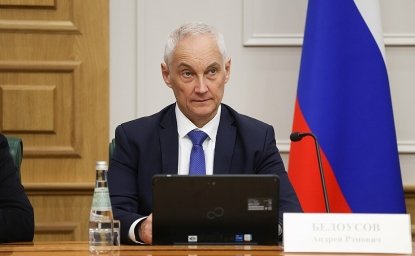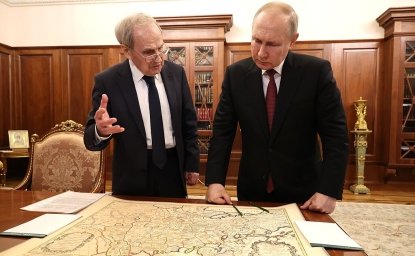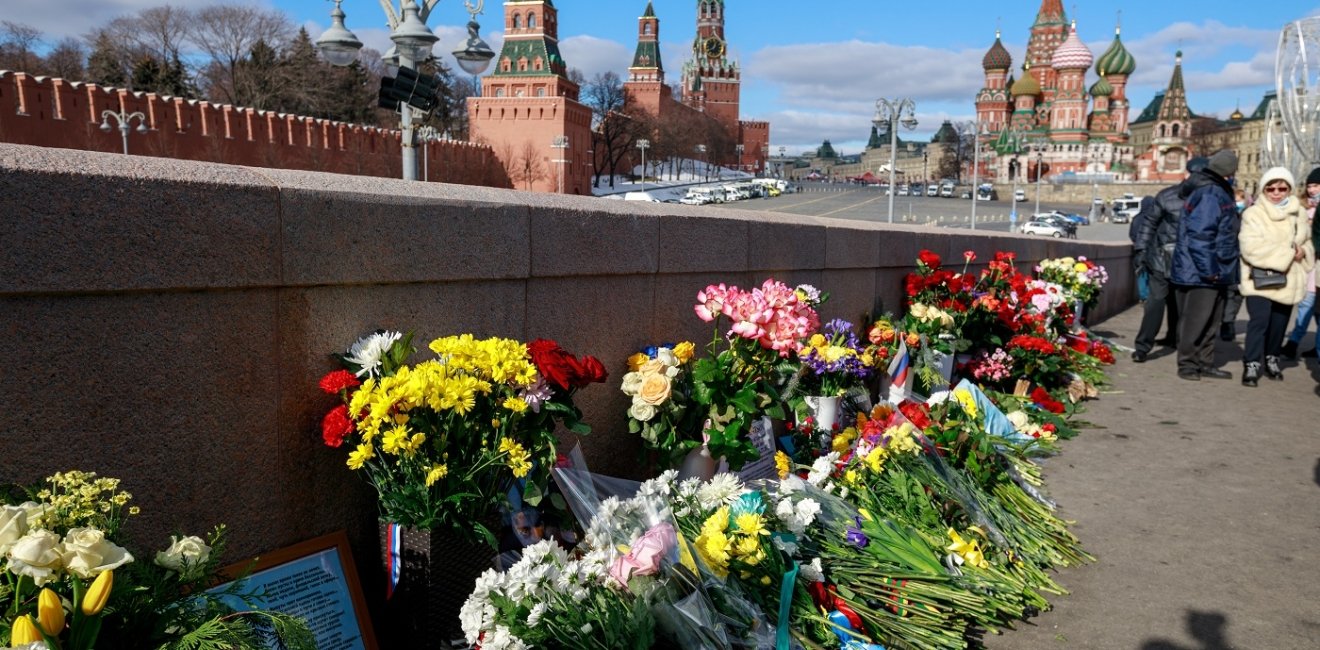
A blog of the Kennan Institute
Russian society has long been accustomed to the idea that the real masterminds behind high-profile murders and assassination attempts will not be found. There is no trust in official investigative bodies. There is limited trust in investigative media too. For most Russians, both inside and outside their country, thinking in the logic of “everybody understands everything” has become the only reliable way to make sense of what is happening in Russia.
“We had nothing to do with it. Everybody realizes who has something to do with it,” President Volodymyr Zelensky said, referring to the plane crash that killed Yevgeny Prigozhin, the man behind the mercenary group Wagner.
“Everyone understands everything” is a phrase that has for many years best characterized the political system in Russia. "Everyone understands" who was behind Navalny’s sentence and his attempted poisoning. “Everyone understands” who is behind the murders of the journalist Anna Politkovskaya and the liberal politician Boris Nemtsov and the elimination of other opposition politicians, journalists, as well as some overzealous patriots.
Attempts by independent activists and journalists to find out the truth about high-profile killings lead to the emergence of believable versions of what happened. But full, fact-based certainty about what really happened is impossible to achieve under the current Russian regime. The media are not the Investigative Committee or the court of law.
For the majority of the public, what remains is to accept the most plausible reading of Russia’s opaque political reality: it represents a constant process of score-settling between each and every prominent member of the Russian elite, between the Kremlin and certain nations, between the Kremlin and certain social groups.
The Russian state in its current form has settled scores with Chechens, Georgians, Ukrainians, Russian oligarchs, opposition politicians, journalists, overly active patriots and nationalists, LGBTQ people, and entire countries.
When Vladimir Putin said, in 2006, that “the murder [of Politkovskaya] does much more damage and harm to the current government than her publications,” many assumed that the Kremlin really had nothing to do with the journalist’s death. When “informed sources” insisted that “Nemtsov’s murder infuriated Putin,” there was still such talk, but noticeably less.
When Putin assured everyone that there were no Russian soldiers in Crimea, no one seriously believed him anymore. When representatives of the regime headed by Putin started saying after February 24 that it was not they who started the war in Ukraine, but Western countries against them, even the generally friendly audience laughed. By the time of Prigozhin’s murder, everyone’s understanding of “everything” had become all-encompassing.
Officially, Russia is a democracy, with separation of powers, parties, and elections. But even high-ranking officials sometimes publicly say (and then deny) that all this is really just “expensive bureaucracy.” Russian civil servants lead a double life, combining political power and personal enrichment. Maintaining the image of officials in the service of the state, they conceal their material acquisitions and vehemently deny their existence. Those who dare not glorify the external achievements of their leaders and draw public attention to the duality of their lives—opposition activists and independent journalists—risk persecution and gangland-style killings.
The discrepancy between the painted facade and the obvious reality, which includes the summary execution of opponents and treacherous allies, can be described by comparing the Russian government to the Mafia.
Organized criminal groups are built on a vertical, unaccountable hierarchy of command and always strive to appear to be something they are not. For example, the Italian writer Roberto Saviano’s study of two Italian criminal organizations, the Camorra and the ‘Ndrangheta, shows how these structures are adept at turning a “humane” side to society, often substituting for poorly functioning government agencies.
The perception of the Russian government as a bandit regime is firmly established between some scholars and journalists. It is one possible description, but it has been around for quite a while. “Is Russia a fascist state? A totalitarian one? A dictatorship? A cult of personality? An autocracy? An ideocracy? A kleptocracy? The best description of the Russian state is a mafia state,” the journalist Masha Gessen wrote in 2016.
Gessen was referring to the studies of Balint Magyar, a Hungarian sociologist, the author of Post-Communist Mafia State: The Case of Hungary. “At the center [of this kind of regime] is a family, and at the center of the family is a patriarch. ‘He doesn’t govern,’ says Magyar. ‘He disposes—of positions, wealth, statuses, persons.’”
Russia’s regulatory environment cannot be reduced to legislation. It is multi-layered and volatile. Many people feel this, hence the perception that “everyone in Russia understands everything.” They understand it vaguely, with no hope that one day official investigations will be conducted and the real causes of the most high-profile events publicly announced. But they understand enough to unmistakably read the messages of the authorities, which are sometimes expressed in murders, poisonings, and blackmail.
Killings or poisonings, of course, are reserved for the most daring, like Prigozhin. There are also less lethal ways to hold on to power: manufactured criminal cases, blackmail, taking hostages.
Broad sections of the population are addressed by Russia’s ever-changing laws, which, in fact, are nothing but formalized threats. The job of these laws is to show that going out to protest, posting on social networks, or refusing to report to the military recruitment center will lead to unpleasant consequences. The threats are stated not only in the dry wording of criminal and administrative articles, but demonstrated by examples. Examples are scarier than words.
The settling of scores could become an epidemic, and most of the Russian elite cannot fail to realize this. “Everyone understands everything.” That is why so few of them have made anti-war statements and left the country. That is why it is so easy for them to call black “white” and white “black.” They have managed to accumulate too much during their double life—and the potential cost of “getting out” is too great.
The opinions expressed in this article are those solely of the author and do not reflect the views of the Kennan Institute.
Author

Editor-at-Large, Meduza

Kennan Institute
The Kennan Institute is the premier US center for advanced research on Eurasia and the oldest and largest regional program at the Woodrow Wilson International Center for Scholars. The Kennan Institute is committed to improving American understanding of Russia, Ukraine, Central Asia, the South Caucasus, and the surrounding region though research and exchange. Read more

Explore More in The Russia File
Browse The Russia File
This Is How Words Create War

Putin’s Obsession, Ukraine’s Struggle, and the West’s Mistakes

In Search of Russia’s Digital Trace in Romania’s Political Crisis

